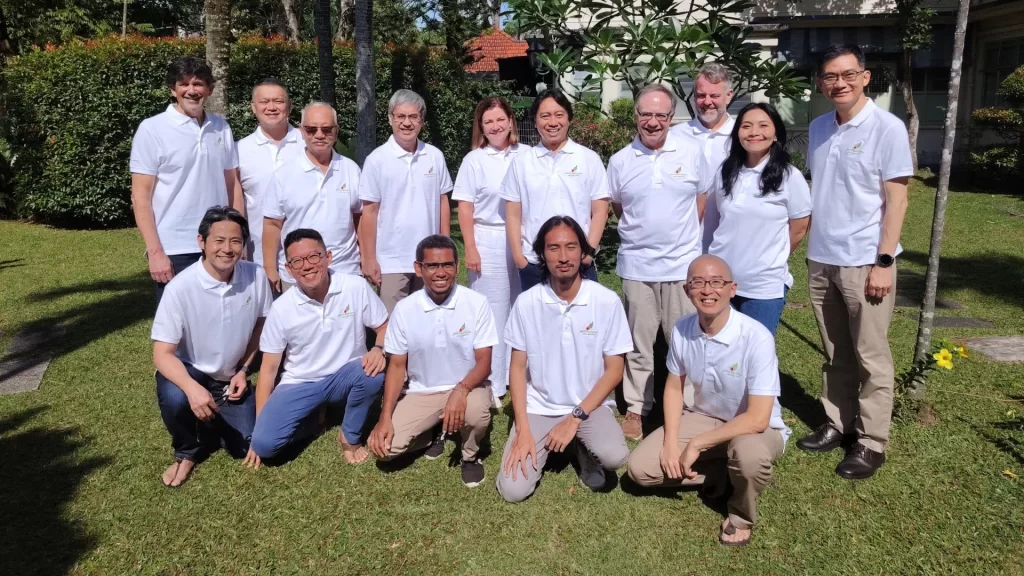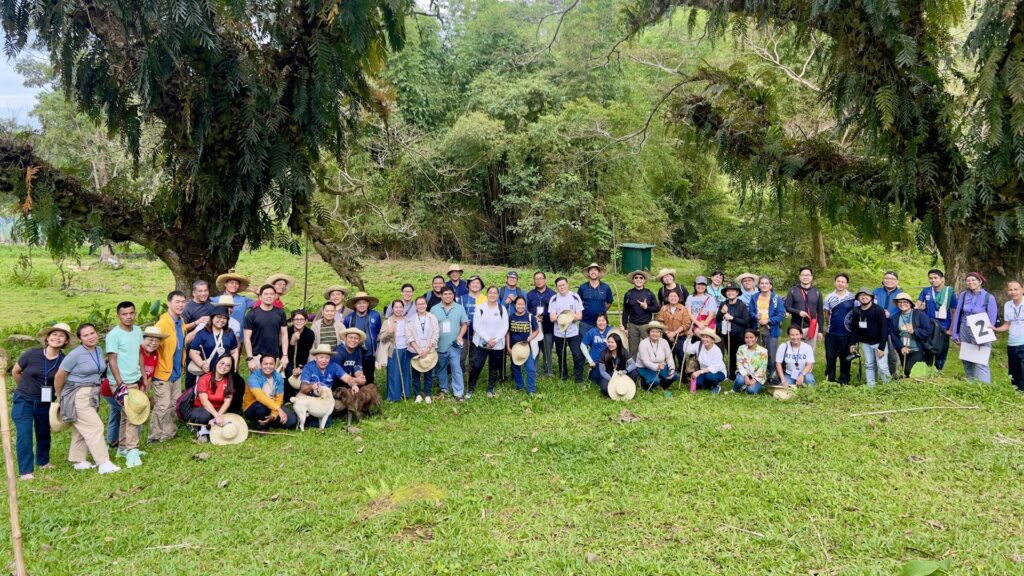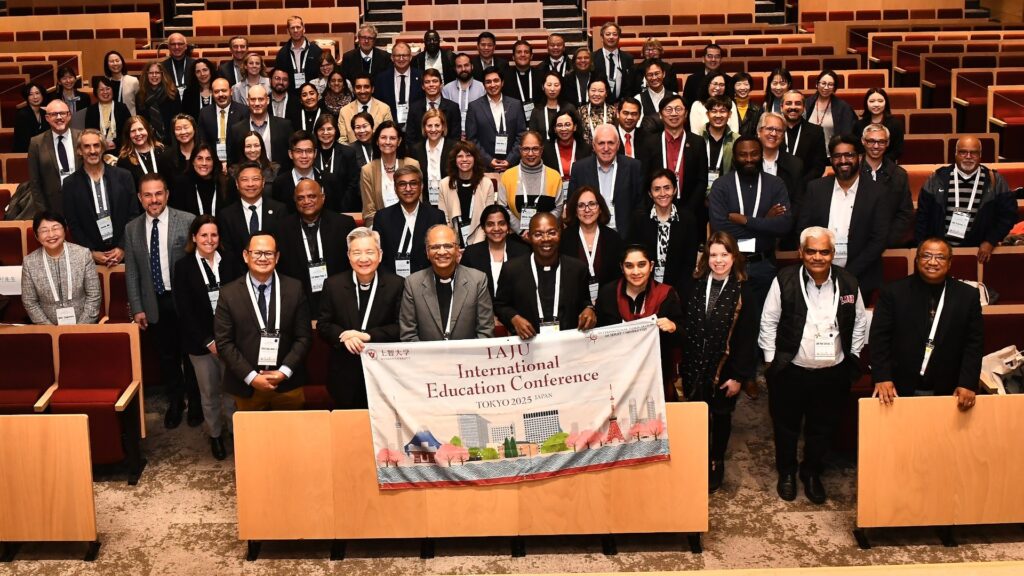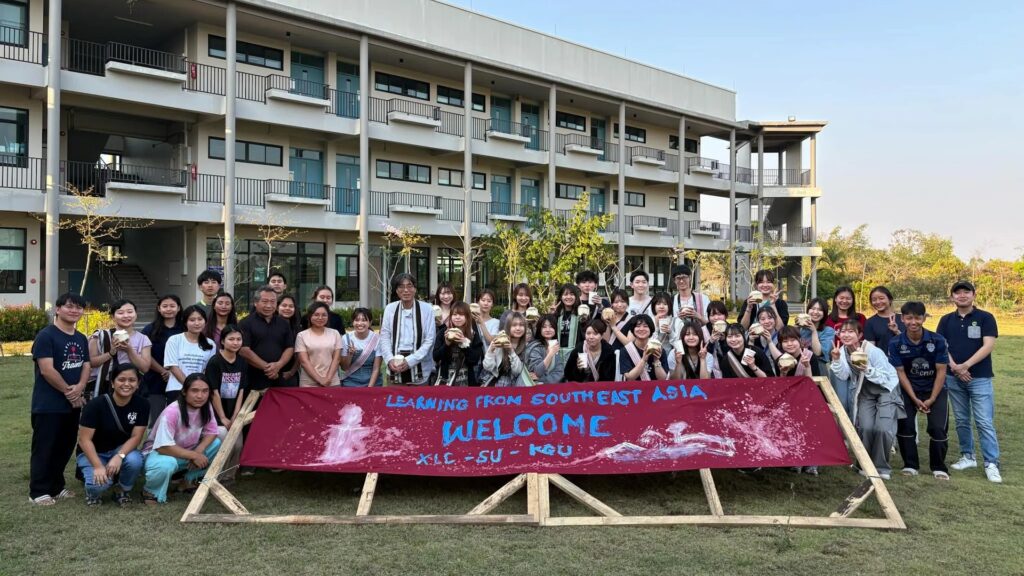Fr Daniel Ross SJ, Director of the International Center for the Promotion of Partner Based Learning in Zhuhai, Guangdong, China, shares with us their work and a local student’s account of her experience. Fr Ross has been teaching at Fu Jen University in Taiwan for the past 39 years and teaches seminars in Zhuhai and Fu Jen.
Friends have asked me just what we are doing in Zhuhai. The answer is a little complicated, since we are trying to develop new ways to approach university students in China, and we have started several projects. Another way to put it is that we are trying to “fill in” what is lacking in the traditional education of the students.
This past semester I taught a seminar in a way that would not be new for many of us, but in Zhuhai it is something that is very much appreciated by the students. Each of the 12 undergraduate seminar students wrote an evaluation and shared what they learned from the course. Below is what one student wrote. One thing to be noted is the quality of the English. They make mistakes, of course, but they can not only handle English very well, they are also not afraid to make mistakes. They are eager learners.
A Zhuhai student writes of her experience taking the seminar.
When my monitor told me that there was a new elective course about multi-culture study available, which would randomly choose 6 boys and 6 girls among all the students who wanted to select this course, I hurried to look at the education management website to see if I could have a chance. Beyond my expectation, I turned out to be the lucky one chosen! I got the chance to take part in a class using different kinds of teaching methods! And I was sure that I would definitely learn something from this class.
In my other classes, if the teacher tries this seminar form, it’s just a waste of time. Students would celebrate that: Great! 45 minutes for dozing and gossiping! The reason is, on the one hand, students are not aware of the significance of this kind of class; on the other hand, the teacher uses it improperly. And the teacher might not really know the significance, either. The evidence is that the teacher would not quite take part in the discussion, and after the students’ discussion the teacher still give the “standard answers”. Consequently, many students just wait as they gossip till the last minute of the class to copy the standard answers.
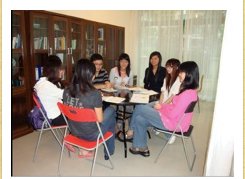
Plus, you’d be amazed at your erudite classmates. Therefore, I also renewed my definition of “Teacher”. I clearly remember that in our first class, Professor Ross told us his Chinese name and inquired the implied meaning of it. I had no idea. One girl among us came up with the answer at once: the name means the four pillars of a country in traditional Chinese Literature. As a Chinese, I felt ashamed of not knowing this. Meanwhile I admired that girl. There was another lesson in which Professor Ross raised a series of questions about languages and history. For example, which language is most similar to Finnish? (Korean) Another example, what’s the root and meaning of Philadelphia? (The city of brotherhood) Those were not easy questions, but another of my classmates showed his competence and answered most of the questions. I couldn’t help admire him, too. In such a seminar-like class, we are more devoted and passionate, and we can know our classmates better. Hence you will show your strengths and deficiencies clearly. You can share your knowledge with your classmates, and learn from them. I bet that sometimes they are as good as teachers.
Thanks to all my “teachers” in the class, including those who speak in the video clips, I have enlarged my definition of knowledge. Under the influence of exam oriented education system, the Chinese definition for knowledge is clear and narrow. This means that only the knowledge on the book would count as genuine knowledge. In fact, living skills, playing and art are also knowledge. I watched a Cantonese TV series, in which a child performed an interesting magic trick to entertain his parents. However, his parents didn’t quite enjoy the show, and gave a comment to their son: “Nice show. You see, you are so clever, if you can cut your time on playing this kind of useless thing short, and put more time on your study, you will be among the top students in your school.” They said that as they nodded. It was not until their child told them that without his chemistry knowledge he couldn’t do the magic trick that they started to appreciate his performance.
Though this concept is changing nowadays, I believe that it’s still the prevailing fact in China. People don’t care much about social science, neither did I. Luckily I’ve now changed. In fact our class doesn’t really study a certain subject. We talk about all the things that come into our minds: educational problems, oral English skills, even meaningless imaginations. But we did get something out of them, and most of the time we basked in the shine of pure knowledge. The knowledge we learned, while not profitable like economics, or practical like physics, might seem useless to others. However, that’s not true. Any knowledge is worth studying. In one of our lessons there was a video clip of Nicholas Christakis about social network, an issue beginning with the problem of obesity. Christakis found that those who are obese increase the possibility of others around them become obese. The issue, though interesting, is useless to most people. And it was not until I finished the video that I realized that it could be a “Newton’s apple”. See how this “useless” issue works: because of the power of social networking, FaceBook became the champion of the websites; because of the power of social networking, Twitter caused another upheaval of Internet.
These are not the only things I got out of the class. Religious issues, chances to teach in Cambodia, a taste of learning sociology are all available. After all, I will be benefited from my new understanding of learning and independent thinking all my life. So, that’s not only a class of multi-cultural study, but also a class of life.
More information on the International Center for the Promotion of Partner Based Learning can be found at www.ipbl.info



